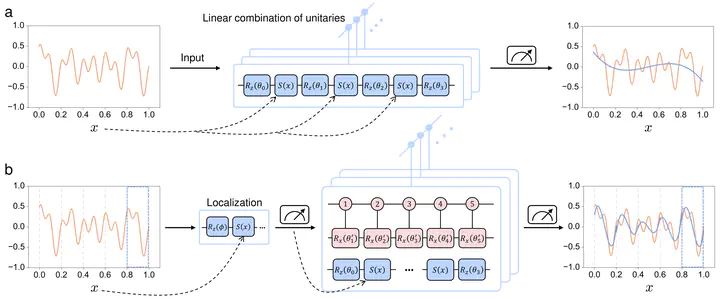 Overview of PQCs for approximating continuous functions.
Overview of PQCs for approximating continuous functions.Abstract
Parameterized quantum circuits (PQCs) have emerged as a promising approach for quantum neural networks. However, understanding their expressive power in accomplishing machine learning tasks remains a crucial question. This paper investigates the expressivity of PQCs for approximating general multivariate function classes. Unlike previous Universal Approximation Theorems for PQCs, which are either nonconstructive or rely on parameterized classical data processing, we explicitly construct data re-uploading PQCs for approximating multivariate polynomials and smooth functions. We establish the first non-asymptotic approximation error bounds for these functions in terms of the number of qubits, quantum circuit depth, and number of trainable parameters. Notably, we demonstrate that for approximating functions that satisfy specific smoothness criteria, the quantum circuit size and number of trainable parameters of our proposed PQCs can be smaller than those of deep ReLU neural networks. We further validate the approximation capability of PQCs through numerical experiments. Our results provide a theoretical foundation for designing practical PQCs and quantum neural networks for machine learning tasks that can be implemented on near-term quantum devices, paving the way for the advancement of quantum machine learning.